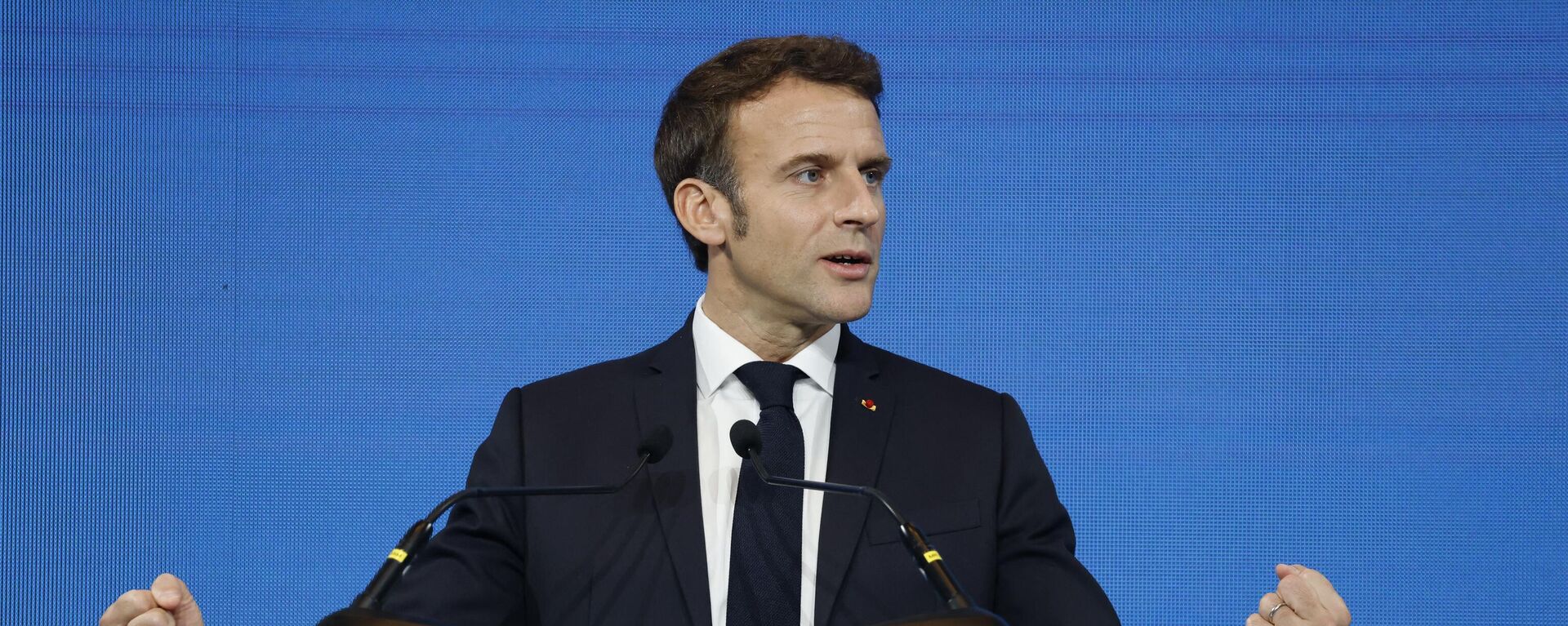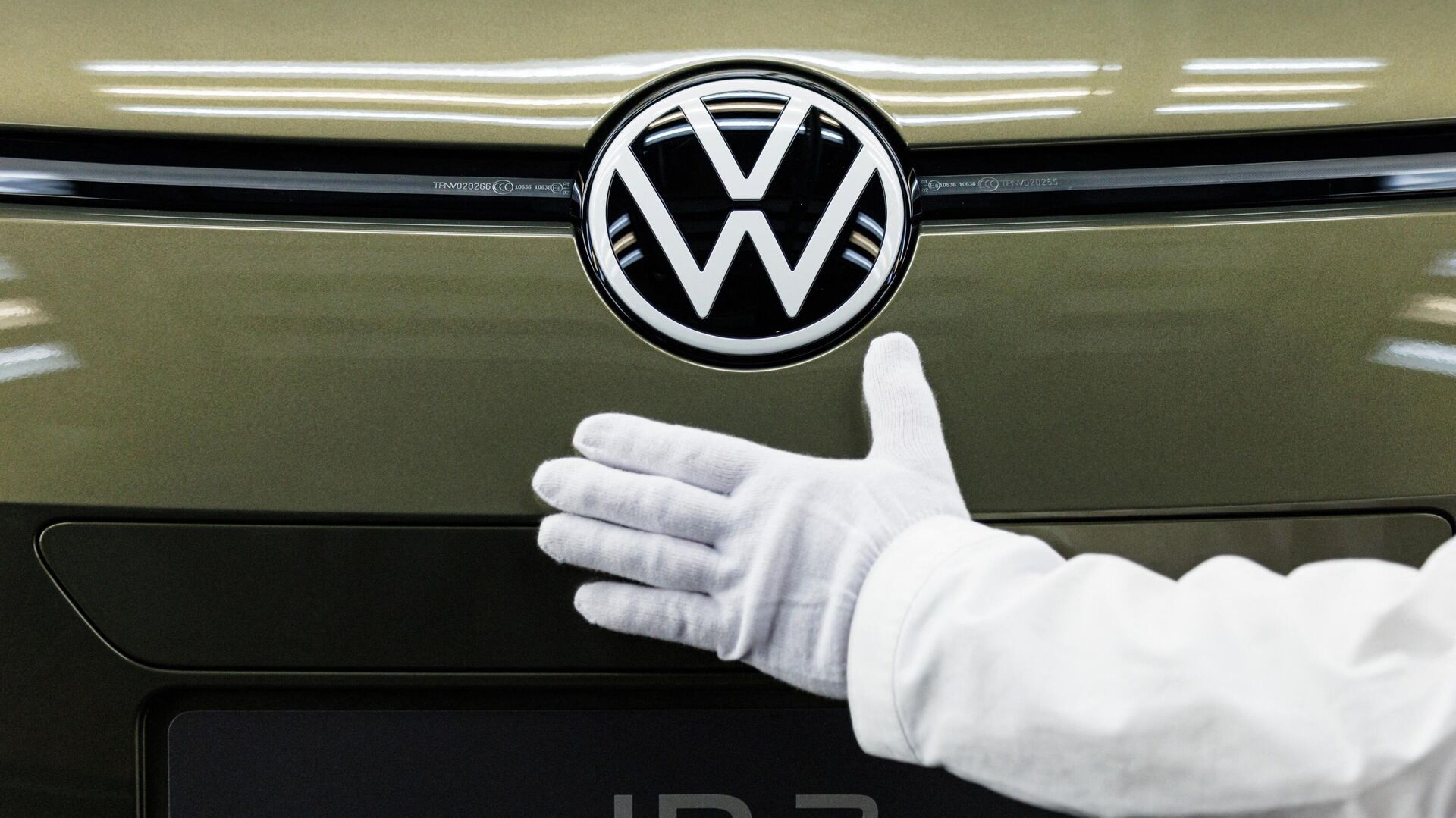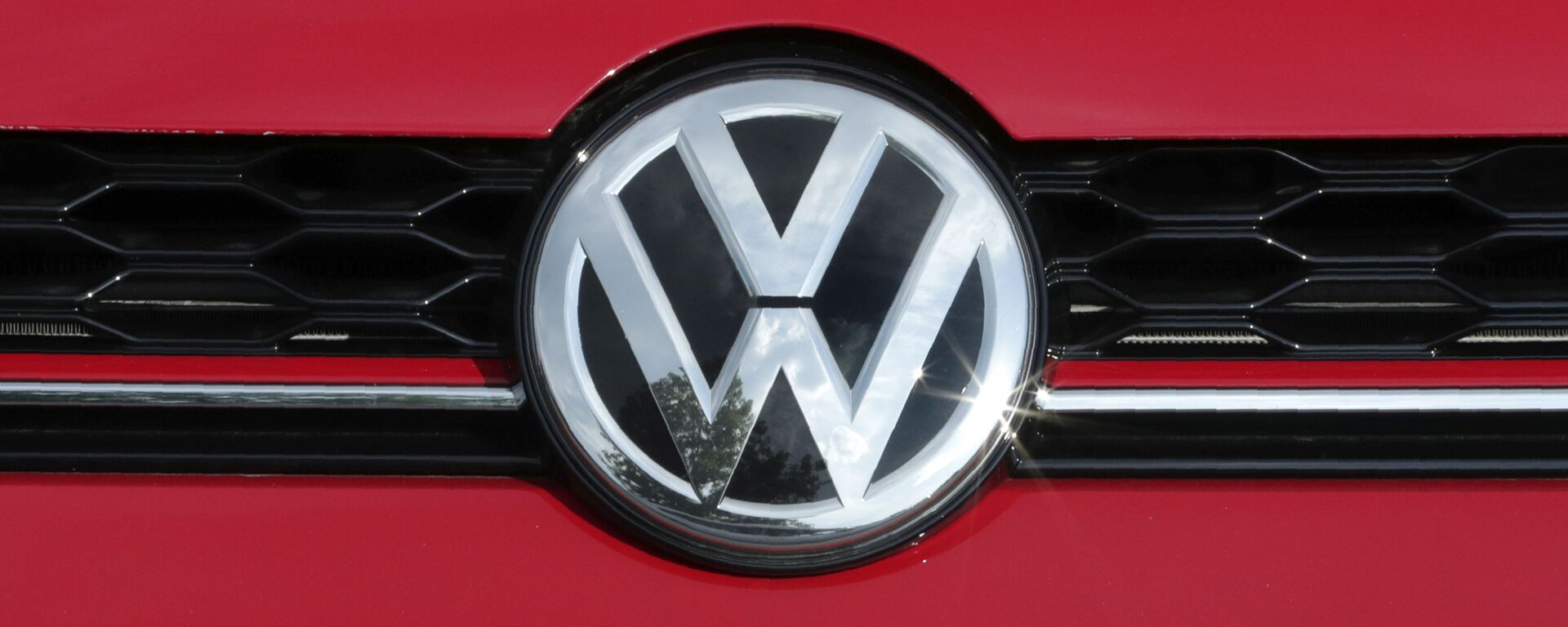https://sputnikglobe.com/20230308/is-europe-at-risk-of-deindustrialization-german-carmaker-reportedly-prefers-us-for-battery-plant-1108173485.html
Is Europe at Risk of Deindustrialization? German Carmaker Reportedly Prefers US for Battery Plant
Is Europe at Risk of Deindustrialization? German Carmaker Reportedly Prefers US for Battery Plant
Sputnik International
Volkswagen has made it clear that the company is still accessing “suitable locations” for its battery plants and that a final decision has yet to be announced.
2023-03-08T11:41+0000
2023-03-08T11:41+0000
2023-03-08T11:41+0000
economy
germany
us
volkswagen
joe biden
inflation reduction act
emmanuel macron
https://cdn1.img.sputnikglobe.com/img/07e7/03/08/1108174954_0:161:3071:1888_1920x0_80_0_0_7a77ddc9b676e9e6cf74b7df150d93f0.jpg
German carmaker Volkswagen (VW) is suspending plans to build a battery plant in Eastern Europe, and prioritizing the construction of such a factory in North America where it expects to reap 9 billion to 10 billion euros ($10.54 billion) in subsidies, a UK newspaper has cited unnamed sources as saying."Plans in North America have moved forward faster than expected and overtaken decision making in Europe," the insiders argued.A Volkswagen spokesperson in turn said that the carmaker was "still evaluating suitable locations" for its "next cell factories in Eastern Europe and North America," and that "no decisions have been made yet."The remarks follow Volkswagen board member Thomas Schmall warning last week that Europe risked losing "the race for billions of investments that will be decided in coming months and years" to what he described as the attractive conditions offered by the IRA.In a separate development last week, VW’s chief financial officer Arno Antlitz claimed that "the IRA gives us a tailwind in terms of speed and consequence, so we have the possibility to enlarge our global footprint even faster in the US with the IRA."Europe on Verge of Deindistrialization? This was preceded by French President Emmanuel Macron warning that the IRA threatens Europe with deindustrialization.The French president also called for what he described as "a European wake-up on this point."Macron was echoed by Peter Carlsson, the chief executive of the Swedish battery developer and manufacturer Northvolt, who told a UK newspaper that the IRA "is moving momentum a lot from Europe to the US" and that the US legislation was not only affecting European companies.Luisa Santos, deputy director-general of the pan-European lobby group BusinessEurope, was cited by the British newspaper as saying that the IRA sends a "dangerous signal" that may encourage other jurisdictions to take protectionist measures.For his part, Russian President Vladimir Putin has warned that the EU’s current economic troubles and Washington’s unfriendly attitude towards Brussels stem from the weakness showed by the bloc’s leaders.European Commission President Ursula von der Leyen previously slammed the tax breaks for consumers who buy American products, introduced under the IRA. She cautioned that such initiatives could “lead to unfair competition, could close markets, and thus fragment critical supply chains.”The IRA, which was signed into law by US President Joe Biden in August 2022, unlocks $369 billion in tax credits and subsidies for American consumers and companies making green tech products in the country as of January 2023. Several EU companies reportedly signaled a readiness to invest in the US rather than the EU, with rising energy prices at home purportedly being a crucial factor.The developments unfold among EU fears that the IRA could unleash a subsidy race between the transatlantic allies at a time when they look to show unity in the face of the Ukrainian conflict.
https://sputnikglobe.com/20221201/it-will-split-the-west-macron-lambasts-bidens-inflation-reduction-act-1104918335.html
https://sputnikglobe.com/20220310/volkswagen-economic-damage-to-eu-from-ukraine-crisis-may-be-worse-than-covid-19-pandemic-1093743977.html
germany
Sputnik International
feedback@sputniknews.com
+74956456601
MIA „Rossiya Segodnya“
2023
Oleg Burunov
https://cdn1.img.sputnikglobe.com/img/07e4/09/0b/1080424846_0:0:2048:2048_100x100_80_0_0_3d7b461f8a98586fa3fe739930816aea.jpg
Oleg Burunov
https://cdn1.img.sputnikglobe.com/img/07e4/09/0b/1080424846_0:0:2048:2048_100x100_80_0_0_3d7b461f8a98586fa3fe739930816aea.jpg
News
en_EN
Sputnik International
feedback@sputniknews.com
+74956456601
MIA „Rossiya Segodnya“
Sputnik International
feedback@sputniknews.com
+74956456601
MIA „Rossiya Segodnya“
Oleg Burunov
https://cdn1.img.sputnikglobe.com/img/07e4/09/0b/1080424846_0:0:2048:2048_100x100_80_0_0_3d7b461f8a98586fa3fe739930816aea.jpg
vw's plans on construction of a battery plant in europe, vw's evaluation of 'suitable locations' for its battery plants, russian special military operation
vw's plans on construction of a battery plant in europe, vw's evaluation of 'suitable locations' for its battery plants, russian special military operation
Is Europe at Risk of Deindustrialization? German Carmaker Reportedly Prefers US for Battery Plant
Volkswagen has made it clear that the company is still assessing “suitable locations” for its battery plants and that a final decision has yet to be announced.
German carmaker Volkswagen (VW) is suspending plans to build a battery plant in Eastern Europe, and prioritizing the construction of such a factory in North America where it expects to reap 9 billion to 10 billion euros ($10.54 billion) in subsidies, a UK newspaper has cited unnamed sources as saying.
The sources claimed that VW is "waiting" to see what the EU’s response to the US Inflation Reduction Act (IRA) will be before progressing with plans to build further battery plants in Europe.
"Plans in North America have moved forward faster than expected and overtaken decision making in Europe," the insiders argued.

1 December 2022, 06:41 GMT
A Volkswagen spokesperson in turn said that the carmaker was "still evaluating suitable locations" for its "next cell factories in Eastern Europe and North America," and that "no decisions have been made yet."
"We stick to our plan to build cell factories for about 240 GWh in Europe by 2030, but for this we need the right framework conditions. That is why we wait and see what the so-called EU Green Deal will bring," the spokesperson said, referring to the bloc’s 2020 agreement aimed at making the EU climate neutral by 2050.
The remarks follow Volkswagen board member Thomas Schmall warning last week that Europe risked losing "the race for billions of investments that will be decided in coming months and years" to what he described as the attractive conditions offered by the IRA.
In a separate development last week, VW’s chief financial officer Arno Antlitz claimed that "the IRA gives us a tailwind in terms of speed and consequence, so we have the possibility to enlarge our global footprint even faster in the US with the IRA."
Europe on Verge of Deindistrialization?
This was preceded by French President Emmanuel Macron warning that the IRA threatens Europe with deindustrialization.
"Europe is going through a difficult period because of the war [in Ukraine] and also because of the trade decisions made by our colleagues in the United States. If Europe does not respond, accelerating the 'greening' of the US economy will mean the deindustrialization of Europe," Macron argued, referring to the conflict in Ukraine, where Russia continues its special military operation.
The French president also called for what he described as "a European wake-up on this point."
Macron was echoed by Peter Carlsson, the chief executive of the Swedish battery developer and manufacturer Northvolt, who told a UK newspaper that the IRA "is moving momentum a lot from Europe to the US" and that the US legislation was not only affecting European companies.
According to Carlsson, "There are new Asian players who are reallocating their strategic plans and investments to North America." The same tone was struck by German Economy Minister Robert Habeck, who dubbed the US support "excessive" and something that is "hoovering up investments from Europe."
Luisa Santos, deputy director-general of the pan-European lobby group BusinessEurope, was cited by the British newspaper as saying that the IRA sends a "dangerous signal" that may encourage other jurisdictions to take protectionist measures.
For his part, Russian President Vladimir Putin has warned that the EU’s current economic troubles and Washington’s unfriendly attitude towards Brussels stem from the weakness showed by the bloc’s leaders.
"Today, the EU’s main partner, the US, is pursuing policies leading directly to the de-industrialization of Europe. They even try to complain about that to their American overlord. Sometimes even with resentment they ask ‘Why are you doing this to us?’ I want to ask: ‘What did you expect?’ What else happens to those who allow feet to be wiped on them?" Putin noted.
European Commission President Ursula von der Leyen previously slammed the tax breaks for consumers who buy American products, introduced under the IRA. She cautioned that such initiatives could “lead to unfair competition, could close markets, and thus fragment critical supply chains.”
The IRA, which was signed into law by
US President Joe Biden in August 2022, unlocks $369 billion in tax credits and subsidies for American consumers and companies making green tech products in the country as of January 2023. Several EU companies reportedly signaled a readiness to invest in the US rather than the EU, with rising energy prices at home purportedly being a crucial factor.
The developments unfold among EU fears that the IRA could unleash a subsidy race between the transatlantic allies at a time when they look to show unity in the face of the Ukrainian conflict.





